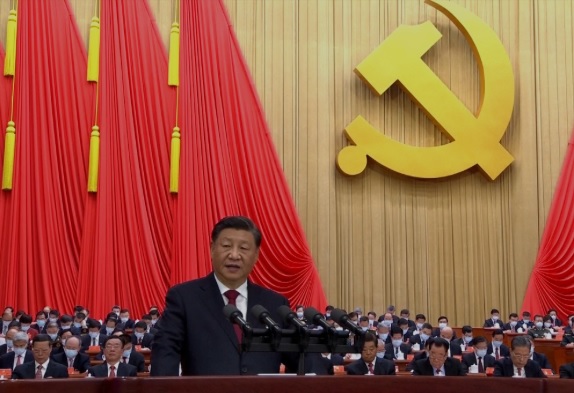by WorldTribune Staff, October 2, 2025 Real World News
On March 6 of this year, the House Committee on Homeland Security held a hearing to examine how the Chinese Communist Party (CCP) undermines U.S. sovereignty through, as the committee stated, “its use of espionage, transnational repression, pre-positioning in our critical infrastructure, intellectual property theft, supply chain dominance, and more.”
In his opening statement at the hearing, Subcommittee on Border Security and Enforcement Chairman Michael Guest, Mississippi Republican, underscored the threat posed by the CCP:

“The CCP’s ultimate aim is not to enjoy a peaceful balance of power with the West, but to establish its position as the dominant world power. A world oriented around the vision and values of the CCP would look very different from the unparalleled freedom and prosperity produced by the Pax Americana. In contrast, the Chinese vision would mean a global order subordinate to the desires and the interest of a totalitarian communist regime.
“In recent years the People’s Republic of China has engaged in sustained campaigns of transnational repression, intellectual property theft, and espionage here in the United States. Over the past four years, there have been more than 60 espionage cases across 20 states linked to the CCP. Operations to gather intelligence on sensitive military information and the theft of technology and trade secrets. Just this past December, a Chinese citizen was arrested for flying a drone over Vandenberg Space Force Base in California. He was apprehended at the airport, trying to board a flight back to China.”
In a Sept. 29 analysis for The Washington Times, Miles Yu, director of the China Center at the Hudson Institute, noted that, “at its core, China remains a communist dictatorship. The party is supreme; property rights do not exist; courts enforce communist authority, not law. Foreign companies are forced to hand over technology, endure surveillance and risk theft of intellectual property. Engagement under such conditions is not partnership; it is extortion, and extortion cannot sustain coexistence.”
The belief that negotiating with the communist regime in Beijing “would coax the communist nation into democratic capitalism was always an illusion,” Yu, a former contributing editor for Geostrategy-Direct.com wrote.
“Three decades of engagement have proved it false. China has not converged with the U.S.-led postwar order; it has collided with it. The collision is structural, ideological and irreconcilable. We must be clear: Peaceful coexistence with the Chinese Communist Party is not unlikely. It is impossible.”
The incompatibility problem, Yu noted, “begins with China’s closed society in a world order built on openness and reciprocity.”
As an example, there are nearly 300,000 Chinese studying in America each year, but fewer than 1,000 American students are in China.
“This imbalance is deliberate. The CCP drains knowledge from abroad but blocks reciprocity through surveillance, censorship and regulation,” Yu wrote.
“The digital divide is even sharper. Americans can download TikTok, a Chinese app whose data practices raise national security alarms. Yet the CCP makes all American social media platforms — including Facebook, Twitter, YouTube, Instagram, Gmail, LinkedIn and Google — unavailable to the Chinese people.”
Then there is China’s online Great Firewall, where “Chinese citizens live in a sealed world where propaganda dominates,” Yu wrote. “Hundreds of millions believe COVID-19 began not in Wuhan but in a U.S. Army lab in Maryland. This is not a misunderstanding; it is indoctrination. A regime built on lies at home will not deal honestly abroad.”
Meanwhile, Chinese firms are freely buying up American assets while U.S. firms face endless barriers in China.
“Reciprocity, the bedrock of fair exchange, is absent,” Yu wrote. “Beijing’s aim is not mutual prosperity but asymmetric gain. Hoping patience will change this is as naive as trusting Hitler’s pledges or Leonid Brezhnev’s promises.”
“Simultaneously, China militarizes the South China Sea, threatens Taiwan and bankrolls Russia’s war in Ukraine. These are not the behaviors of a state seeking stability. They are the actions of a power bent on rewriting the global order.”
U.S. President Donald Trump’s insistence on “opening up China” was no break from tradition, Yu noted, “it was the reaffirmation of America’s century-old refusal to accept exploitation as the price of engagement.”
Yu concluded:
“The time for illusions is over. China is not a partner waiting for persuasion. It is a closed society, a non-market economy, a communist dictatorship with global ambitions. Its system makes coexistence not difficult but impossible.
“The choice is stark: China either accepts the principles of openness and reciprocity or remains outside the order it seeks to subvert.
“History has already taught us this lesson. We cannot afford to relearn it the hard way.”
